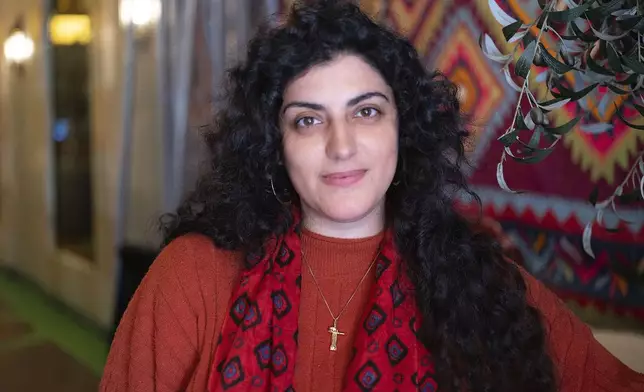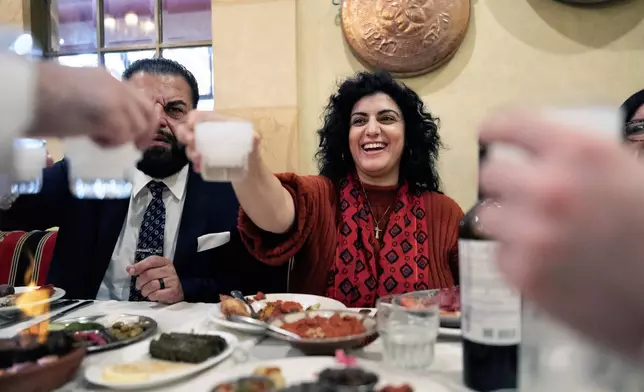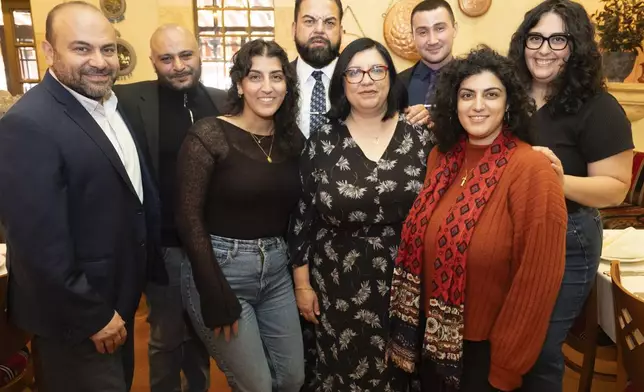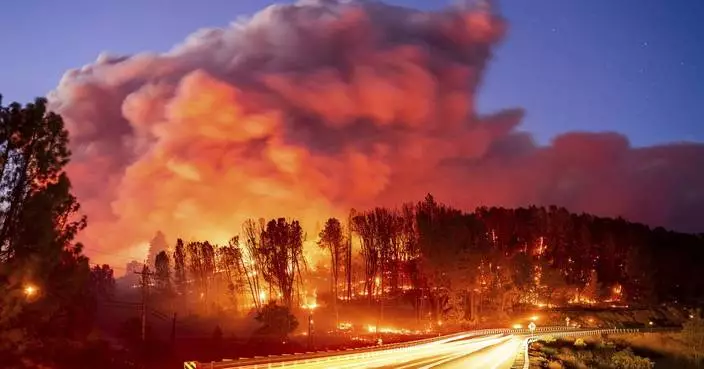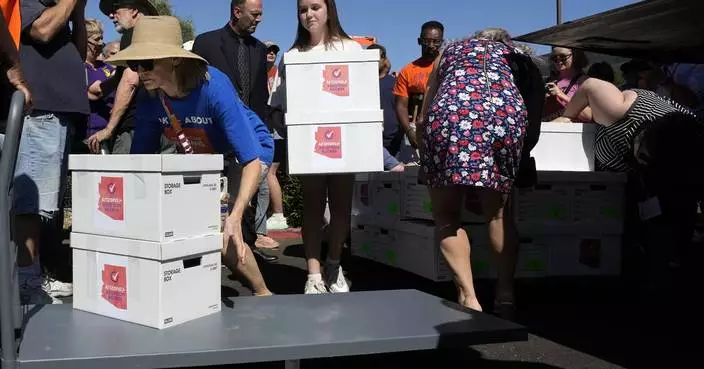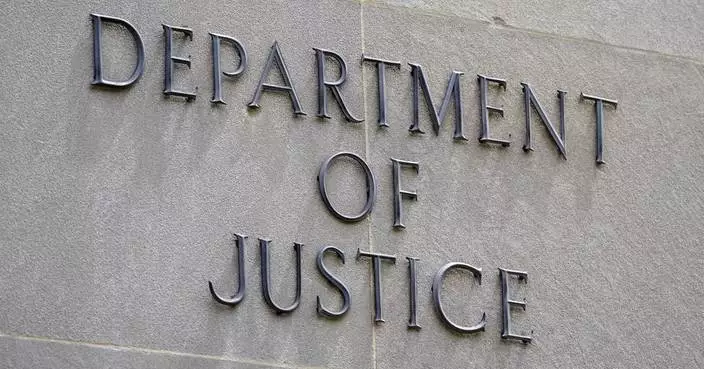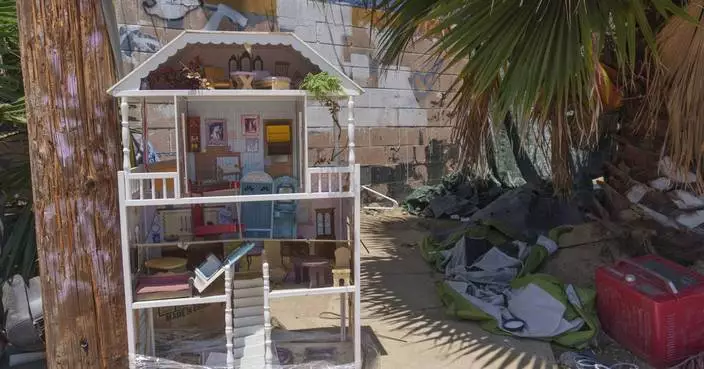The federal government recently reclassified race and ethnicity groups in an effort to better capture the diversity of the United States, but some groups feel the changes miss the mark.
Hmong, Armenian, Black Arab and Brazilian communities in the U.S. say they are not represented accurately in the official numbers. While the revisions were widely applauded, these communities say the changes have created a tension between how the federal government classifies them versus how they identify themselves.
The groups say money, political power and even health could be at stake. Being lumped into the wrong column can mean a gain or loss of government funds that are distributed based on data. For some, it's about their identity and feeling seen by their own country.
The Office of Management and Budget said the working group that oversaw the revisions held 94 “listening sessions” with many advocacy groups, academics and the general public, and it will continue to reach out to communities.
During the Vietnam War and unbeknownst to the American public, the CIA recruited Lao and Hmong people to fight the spread of communism throughout Southeast Asia. Tens of thousands of Hmong soldiers died while others fled to the U.S. as a result of what became known as the “secret war."
By the 1970s, many Hmong had resettled in Minnesota, Wisconsin and central California. Today, Hmong in the U.S. number more than 300,000. Some states recognize Hmong and Lao veterans with annual ceremonies, and in April, the Wisconsin governor signed a law mandating that Hmong American history be taught in schools.
Given their history fighting in that region for the U.S., many Hmong feel strongly that they should be classified as Southeast Asian. But because China is considered the Hmong ancestral homeland, the U.S. Census Bureau categorized them as East Asian after the 2020 census.
“That has been very hurtful to our elders and to our veterans who sacrificed so much to get us here to this country after everything they did to help the U.S. during the Vietnam War,” said May yer Thao, president and CEO of the St. Paul, Minnesota-based Hmong American Partnership.
The East Asian label also pains them because the Hmong were oppressed in China as an ethnic minority and sought refuge in Cambodia, Laos and Vietnam, according to Quyên Dinh, executive director of the Washington, D.C.-based Southeast Asia Resource Action Center.
Those who object to the classification also have a practical concern: the East Asian grouping could hide socioeconomic disparities between Hmong and other Asian households that need to be addressed. The per capita income of Hmong was almost $26,000, while it was more than $53,000 for Asians overall, according to the 2022 American Community Survey.
“We are still one of the most impoverished communities in this nation,” Thao said.
The Census Bureau says it’s working with the Hmong community to improve their classification.
When the government revised its race and ethnicity standards in March — it's first major alteration since 1997 — its seven categories included a new one, Middle Eastern or North African, or MENA. The revisions also encouraged detailed data collection about respondents' backgrounds, such as African American, Jamaican and Haitian under the Black category.
Missing from the list of backgrounds under the new MENA category: Black Arabs from such countries as Somalia and Sudan, and Armenians. The groups were left out after a 2015 field test by the Census Bureau found that most Armenians still identified as white and most Somali and Sudanese respondents identified as Black even when MENA was an option.
Some advocates said the decision to omit Black Arabs from being included in the MENA category was based on outdated research.
For many Armenian Americans, not having their own category amounts to an existential threat as a large part of their diaspora's culture is now concentrated in the United States. Ethnic Armenians also have communities around Europe and the Middle East, in particular Lebanon.
Many are descendants of those who fled the 1915 campaign by Ottoman Turks in which some 1.5 million Armenians died in massacres, deportations and forced marches. The atrocities, which emptied many ethnic areas in eastern Turkey, are widely viewed by historians as genocide. Turkey rejects the description of genocide, saying the toll has been inflated and that those killed were victims of civil war and unrest during World War I.
Without Armenian inclusion in the MENA subcategories, many will likely categorize themselves as being from a different country. That could diminish their official numbers and reduce their power when it comes to redrawing political districts in places with large Armenian communities, said Sophia Armen, chair of the Census Taskforce of the Armenian National Committee of America-Western Region.
“We will now be undercounted by potentially hundreds of thousands of people,” Armen said. “It spells out a very real destruction of Armenian identity in the next two generations.”
During the last redistricting round following the 2020 census, Armenians in greater Los Angeles — which has the largest concentration of Armenians outside Armenia — were almost split up into different city districts, but the redistricting plan was modified after they sounded the alarm. There are an estimated 460,000 Armenian Americans in the U.S., with half living in California, according to the 2022 American Community Survey.
Being identified in the data correctly also is important to local health departments. It can influence anything from vaccination outreach in the proper language to tailoring health campaigns for specific communities.
Armenian Americans, for instance, are more likely to suffer from hypertension than the general population, but there’s not a lot of data.
A coding error last year in an annual Census Bureau survey offered unprecedented insight into how large numbers of Brazilians in the U.S. identify as Hispanic or Latino.
An analysis by Pew Research Center showed that the coding mistake revealed at least 416,000 Brazilians, or more than two-thirds of Brazilians in the U.S., also identified as Hispanic in the 2020 American Community Survey.
Usually, if someone marks Hispanic and Brazilian on the survey, they are recoded as “not Hispanic” when the numbers are crunched.
Not including Brazilians, or Haitians for that matter, in the definition of Hispanic or Latino, means that large numbers of Afro-Latinos aren't counted, Michelle Bueno Vásquez, a Ph.D. candidate in political science at Northwestern University, wrote the Office of Management and Budget.
“The OMB as it stands fails Latinos, especially Afro-Latinos who continually suffer double discrimination and marginalization, on top of statistical invisibility, in the United States,” she said.
Researching the impacts of categorizing Brazilians as Hispanic was among the recommendations a Census Bureau advisory committee made last month.
“Policy is driven by data, first and foremost,” Armen said of people who feel missed in the classifications. “It just seems like we are purposely being ignored.”
Follow Mike Schneider on X, formerly known as Twitter: @MikeSchneiderAP. Tang is a Phoenix-based member of AP’s Race and Ethnicity team. Follow her on X at @ttangAP.
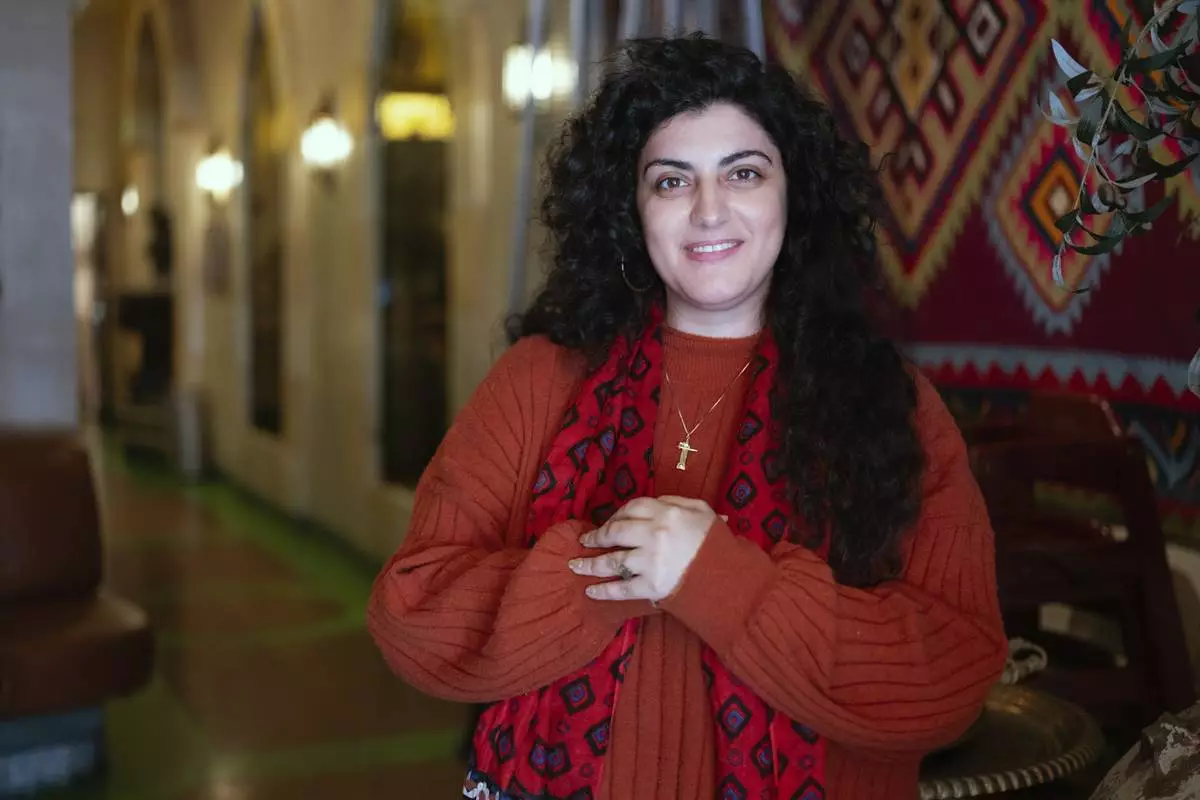
Sophia Armen, chair of the Census Committee of the Armenian National Committee of America-Western Region poses for a photo in Glendale, Calif. on Friday, May 17, 2024. Armen said, because Armenian Americans hailed from places within the Ottoman Empire like Iran or Syria, without Armenian inclusion in the MENA sub-categories, Armenian Americans will likely categorize themselves as being from another country when asked for details about their origins. That could diminish their official numbers and reduce their political power when it comes to redistricting in places with large Armenian communities, such as Los Angeles. (AP Photo/Richard Vogel)

Sophia Armen, chair of the Census Committee of the Armenian National Committee of America-Western Region poses for a photo in Glendale, Calif. on Friday, May 17, 2024. Armen said, because Armenian Americans hailed from places within the Ottoman Empire like Iran or Syria, without Armenian inclusion in the MENA sub-categories, Armenian Americans will likely categorize themselves as being from another country when asked for details about their origins. That could diminish their official numbers and reduce their political power when it comes to redistricting in places with large Armenian communities, such as Los Angeles. (AP Photo/Richard Vogel)

Sophia Armen, chair of the Census Committee of the Armenian National Committee of America-Western Region , second from left, is joined at lunch by members of the Armenian-American Census Coalition at the Carousel a Lebanese-Armenian restaurant in Glendale, Calif. on Friday, May 17, 2024. For some race and ethnic groups, how the U.S. government categorizes them for crucial surveys and the once-a-decade census is still falling short. Hmong as well as Armenian, Arab American and Brazilian communities say they feel excluded or diminished when it comes to how they are counted in their own country. (AP Photo/Richard Vogel)
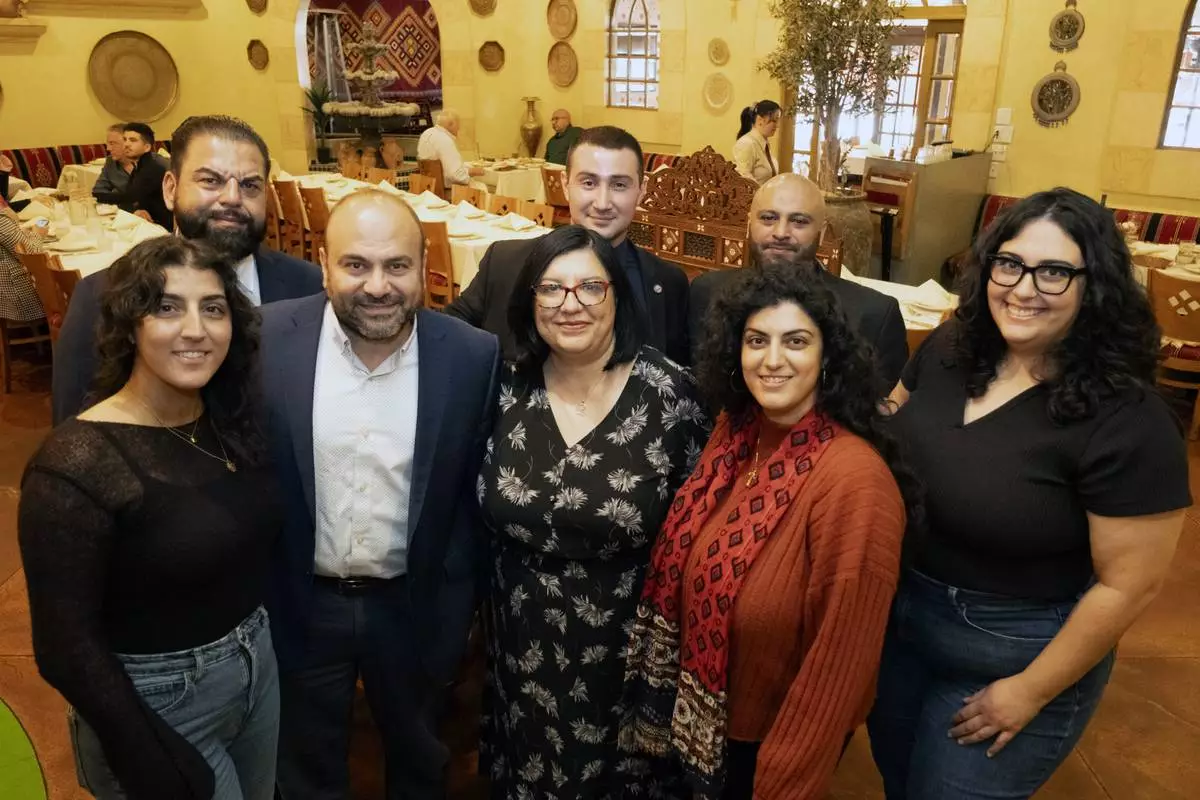
Sophia Armen, chair of the Census Committee of the Armenian National Committee of America-Western Region , second from right, poses for a photo with members of the Armenian-American Census Coalition in Glendale, Calif. on Friday, May 17, 2024. From left to right, Taleene Armen, Dr. Armond Aghakhanian, Adrin Nazarian, Suzie Abajian, Edward Barsumian, Sarfis Balkhian, and Naira Shirinian. (AP Photo/Richard Vogel)
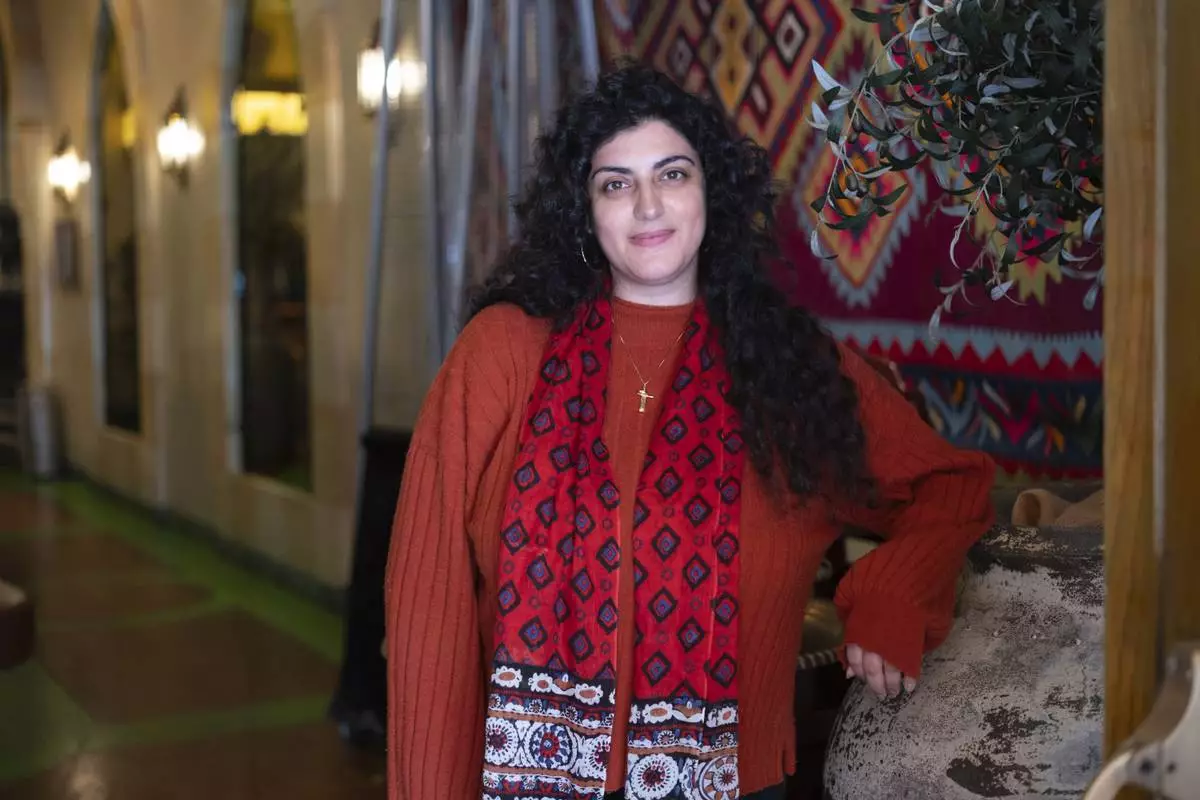
Sophia Armen, chair of the Census Committee of the Armenian National Committee of America-Western Region poses for a photo in Glendale, Calif. on Friday, May 17, 2024. Armen said, because Armenian Americans hailed from places within the Ottoman Empire like Iran or Syria, without Armenian inclusion in the MENA sub-categories, Armenian Americans will likely categorize themselves as being from another country when asked for details about their origins. That could diminish their official numbers and reduce their political power when it comes to redistricting in places with large Armenian communities, such as Los Angeles. (AP Photo/Richard Vogel)
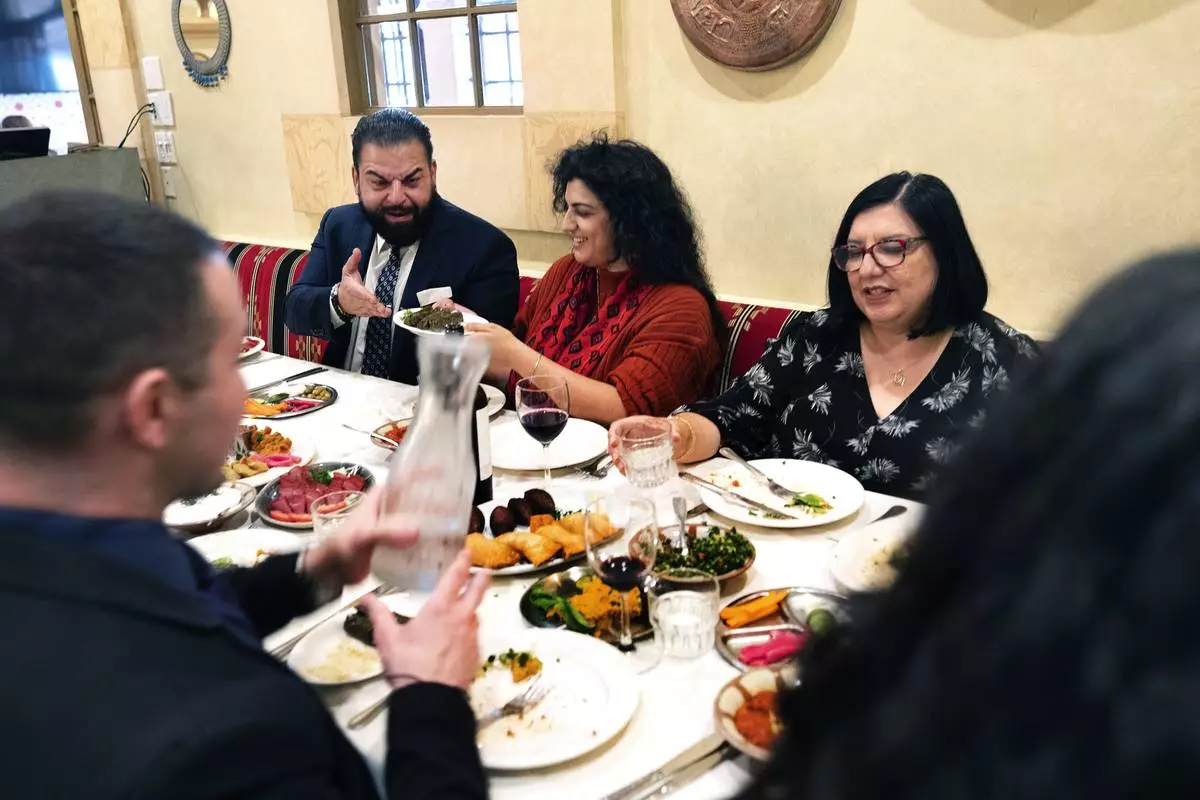
Sophia Armen, center is joined for lunch with members of the Armenian-American Census Coalition, Dr. Armond Aghakhanian Burbank Unified School District board member, left, and Suzie Abajian Glendale City Clerk at the Carousel restaurant in Glendale, Calif. on Friday, May 17, 2024. Armen, chair of the Census Committee of the Armenian National Committee of America-Western Region said, because Armenian Americans hailed from places within the Ottoman Empire like Iran or Syria, without Armenian inclusion in the MENA sub-categories, Armenian Americans will likely categorize themselves as being from another country when asked for details about their origins. That could diminish their official numbers and reduce their political power when it comes to redistricting in places with large Armenian communities, such as Los Angeles. (AP Photo/Richard Vogel)
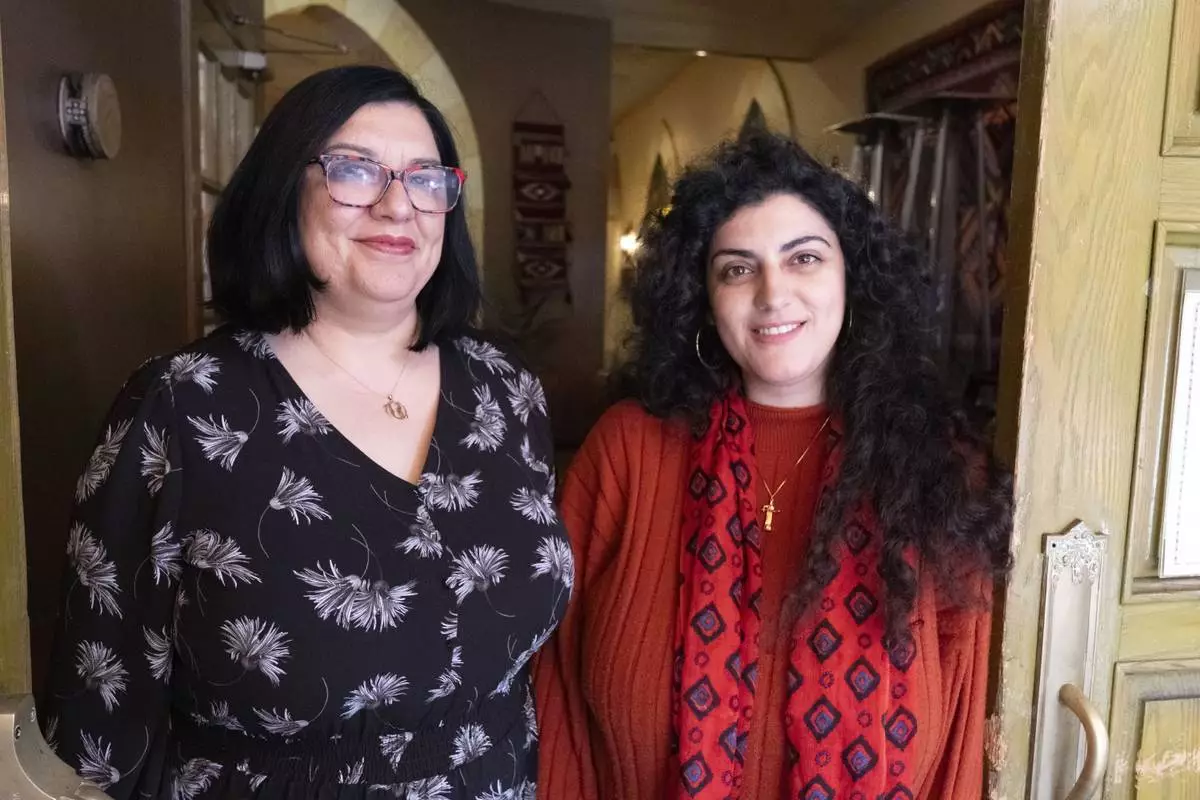
Sophia Armen, right, chair of the Census Committee of the Armenian National Committee of America-Western Region poses for a photo with Suzie Abajian, Glendale City Clerk and part of the ANCA-WR Census Taskforce who is leading the Armenian-American Census Coalition in Glendale, Calif. on Friday, May 17, 2024. For some race and ethnic groups, how the U.S. government categorizes them for crucial surveys and the once-a-decade census is still falling short. Hmong as well as Armenian, Arab American and Brazilian communities say they feel excluded or diminished when it comes to how they are counted in their own country. (AP Photo/Richard Vogel)

Members of the Armenian-American Census Coalition gather at the Carousel a Lebanese-Armenian restaurant for a working lunch in Glendale, Calif. on Friday, May 17, 2024. For some race and ethnic groups, how the U.S. government categorizes them for crucial surveys and the once-a-decade census is still falling short. Hmong as well as Armenian, Arab American and Brazilian communities say they feel excluded or diminished when it comes to how they are counted in their own country. (AP Photo/Richard Vogel)

Sophia Armen, offers a toast to her colleagues, members of the Armenian-American Census Coalition at the Carousel a Lebanese-Armenian restaurant in Glendale, Calif. on Friday, May 17, 2024. For some race and ethnic groups, how the U.S. government categorizes them for crucial surveys and the once-a-decade census is still falling short. Hmong as well as Armenian, Arab American and Brazilian communities say they feel excluded or diminished when it comes to how they are counted in their own country. (AP Photo/Richard Vogel)

Sophia Armen, chair of the Census Committee of the ANCA (Armenian National Committee of America) Western Region, second from right, poses for a photo with members of the Armenian-American Census Coalition in Glendale, Calif. on Friday, May 17, 2024. From left to right, Former California Assembly Member Adrin Nazarian, Executive Director ANCA-Western Region. Sarfis Balkhian , Taleene Armen, Burbank Unified School District, Dr. Armond Aghakhanian, Glendale City Clerk, Suzie Abajian, ANCA Media coordinator Edward Barsumian, and Armenian-American Action Network Program Coordinator Naira Shirinian. (AP Photo/Richard Vogel)

Sophia Armen, center passes a dish to Dr. Armond Aghakhanian and joined for lunch with other members of the Armenian-American Census Coalition, Suzie Abajian and former California Assembly Member Adrian Nazarian at the Carousel, a Lebanese-Armenian restaurant in Glendale, Calif. on Friday, May 17, 2024. For some race and ethnic groups, how the U.S. government categorizes them for crucial surveys and the once-a-decade census is still falling short. Hmong as well as Armenian, Arab American and Brazilian communities say they feel excluded or diminished when it comes to how they are counted in their own country. (AP Photo/Richard Vogel)




